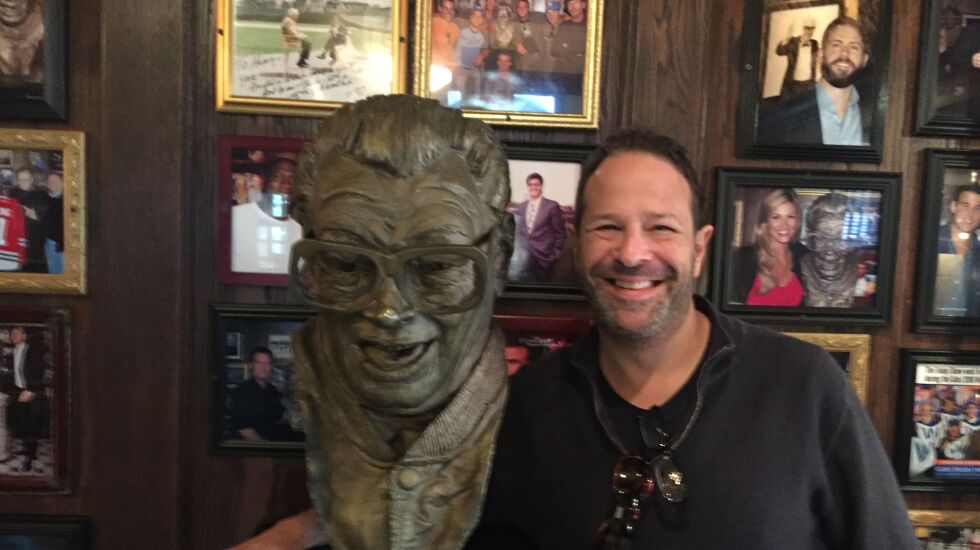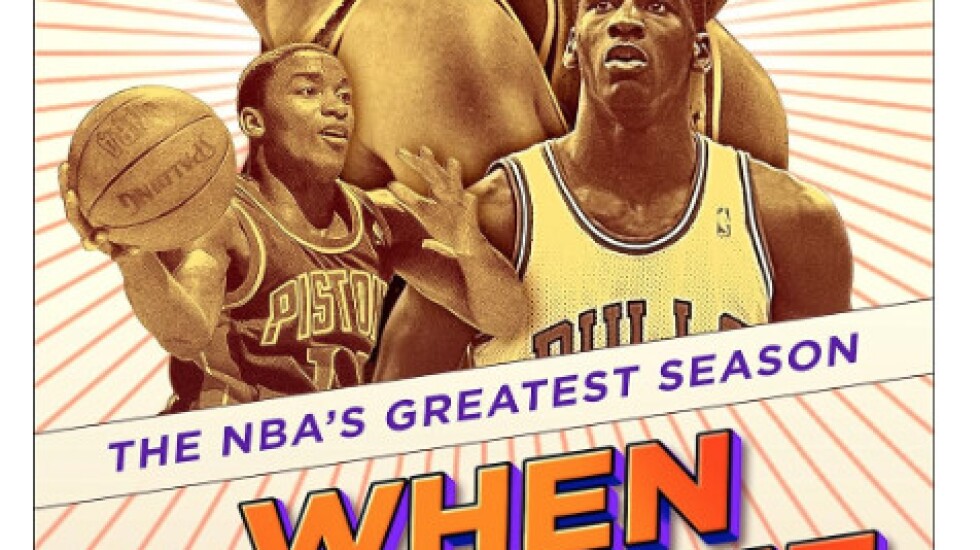
One problem with not following professional sports is that you are denied the distraction that sports offer from the woes of the world.
Which is why, over a weekend that saw a massive Hamas terror attack murder at least 700 Israelis, and Israeli counterstrikes kill hundreds of Palestinians, I was grateful to lose myself for a while in a new book by Rich Cohen, “When the Game was War: The NBA’s Greatest Season.”
Though I’ve read eight Cohen books — he’s written 16 — the idea of revisiting a basketball season from 35 years ago initially left me cold. I wasn’t interested back then, when it was occurring. Why bother with it now?
Well, for starters, because Cohen has a genius for pulling a seine through the information river that is professional sports and netting fascinating facts. I spent more time reading his “Monsters: The 1985 Chicago Bears and the Wild Heart of Football,” than watching football over the past decade, and learned how the Bears took their name as a way to one-up the Cubs.
Yes, there are three other teams examined along with the Bulls — the Detroit Pistons (boo, hiss), the L.A. Lakers and the Boston Celtics. But Cohen has a way of universalizing an athletic moment. This how he describes Isiah Thomas playing on a freshly-turned ankle:
“Isiah became a symbol in those twelve minutes, an embodiment of everything that a person who wants to live ecstatically should be. He played with fury and joy. He loved his teammates and his opponents — you could see it in every move. He never gave up, never stopped trying. He did this not in spite of his injury but because of it.”

You don’t have to care about Thomas — a product of Chicago, who knew? — to get something from that.
OK, OK, everybody knew. I understand that I might be unusual, because when I read Cohen’s books — he also wrote an excellent Cubs history — it’s mostly (to me) fresh information. But you can be a diehard Michael Jordan fan and not know that as a child he would squeeze lemon juice on his toes at bedtime, trying to grow taller. I never knew that Jordan’s first home after he joined the Bulls was in Northbrook, and imagine that most Northbrookites don’t know either.
While it’s always good to see Jordan’s Me-Myself-and-I personality dragged into the sunlight, I particularly enjoyed his biography of Bird, a self-designated “hick from French Lick.” Bird would go to play games after a day spent stacking hay, a hardscrabble upbringing that Cohen compresses into one concise sentence: “He’d never seen a pro game before he played in one.”
Cohen has a way of finding the perfect quote. He gives Bulls general manager Jerry Krause often-denied credit for building the team, then dredges up this:
“I’m ugly and fat, and that’s why people hate me,” Krause said.
I had heard Krause sometimes felt that way. But I don’t think I could have found that quote if I spent a year searching.
Flaws? The second half of this book spends pages describing championship games, and since I’m not interested in watching them unfold in real time, reading about them 35 years later did not float my boat.
What I love are the details. The book ends with a where-are-they-now that includes Pistons forward Adrian Dantley becoming a junior high school crossing guard in Maryland.
And of course Cohen’s gorgeous writing, which grows more economical and iridescent with each new book.
This is how he describes the departure of once-upon-a-time Bulls star Artis Gilmore:
“Artis packed his gear and left without telling anyone. A reporter saw him in the street, behind the collar of his fur coat, hailing a cab as the snow fell. It was pathetic not because it was unusual, nor because he’d once been great, but because, in one way or another, it’s the end that awaits everyone.”
True that. Fans cherish certain moments, seasons, players, teams; keep them locked in their hearts for all their lives. In “When the Game Was War” Rich Cohen manages the difficult trick of opening his heart up, and sharing the passion inside with those of us who remember very well, and those of us who don’t.
Rich Cohen will discuss and sign his book on Tuesday, from 6:30 p.m. to 7:30 p.m., at the Book Stall, 811 Elm St., Winnetka.







